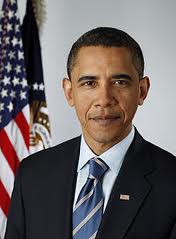As announced on my son’s weblog post
Romney vs. Obama in the ScienceDebate
there is an informative set of Q&A between President Obama and Presidential candidate Mitt Romney that appeared in the article [with the media sponsor Scientific American]
The Top American Science Questions: 2012
The question I am commenting on is
Climate Change. The Earth’s climate is changing and there is concern about the potentially adverse effects of these changes on life on the planet. What is your position on cap-and-trade, carbon taxes, and other policies proposed to address global climate change—and what steps can we take to improve our ability to tackle challenges like climate change that cross national boundaries?
President Obama answered in part
“Climate change is the one of the biggest issues of this generation, and we have to meet this challenge by driving smart policies that lead to greater growth in clean energy generation and result in a range of economic and social benefits….”
President Obama makes the mistake of equating climate change as being dominated by CO2 and other greenhouse gas emissions. Readers of my weblog and my papers know that this is clearly a mistaken view of the role of humans in the climate system; e.g. see also the post by Chris Rapley who wrote
“I agree completely that human greenhouse gas emissions are only part of the climate change story, and that climate change is only a subset of the broader issue of human disturbance of the Earth system.”
and also
“….we have…left ourselves in the awkward position should policy makers address and deal with CO2 emissions of then having to say – “oh and by the way, there are these other issues too…”
Presidential candidate Mitt Romney answered in part
“I am not a scientist myself, but my best assessment of the data is that the world is getting warmer, that human activity contributes to that warming, and that policymakers should therefore consider the risk of negative consequences. However, there remains a lack of scientific consensus on the issue— on the extent of the warming, the extent of the human contribution, and the severity of the risk — and I believe we must support continued debate and investigation within the scientific community….
Economic growth and technological innovation, not economy-suppressing regulation, is the key to environmental protection in the long run. So I believe we should pursue what I call a “No Regrets” policy — steps that will lead to lower emissions, but that will benefit America regardless of whether the risks of global warming materialize and regardless of whether other nations take effective action. “
Mitt Romney clearly understands that the climate system is much more complicated than oversimplified by President Obama.
In my post in December 2011
I commented on the viewpoints of the two political parties, which I summarized in the abstract [highlight added]
Many Republicans do not accept the current understanding of climate science. Democrats, however, also have their “heads in the sand” with respect to the reality of the human role in the climate system. This polarization also illustrate how politicized climate science has become.
The three hypotheses of the human role in the climate system can be, with only a few exceptions, be summarized in terms of the political party.
1. the Republican Party view – Human influence on climate variability and change is of minimal importance, and natural causes dominate climate variations and changes on all time scales. In coming decades, the human influence will continue to be minimal
climate change >> human caused effects including emissions of CO2 and a few other greenhouse
2. the Democratic Party View – Although the natural causes of climate variations and changes are undoubtedly important, the human influences are significant and are dominated by the emissions into the atmosphere of greenhouse gases, the most important of which is CO2. The adverse impact of these gases on regional and global climate constitutes the primary climate issue for the coming decades
climate change = global warming = human emissions of CO2 and a few other greenhouse
3. the Real World View – Although the natural causes of climate variations and changes are undoubtedly important, the human influences are significant and involve a diverse range of first-order climate forcings, including, but not limited to, the human input of carbon dioxide (CO2). Most, if not all, of these human influences on regional and global climate will continue to be of concern during the coming decades –
climate change >> global warming > human caused effects > emissions of CO2 and a few other greenhouse
In order to develop a more robust discussion of climate science, there are two science questions, as a start, that I recommend be asked of members of both political parties
1. Is global warming (and cooling) a subset of climate change or does it dominate climate change?
2. What evidence exists that the multi-decadal global climate models can skillfully predict i) the real-world observed behaviour of large-scale atmospheric-ocean circulation features such as ENSO, the NAO, the PDO, ect. and ii) CHANGES in the statistics (patterning and in time) of these circulation features?
I recommended a Way-Forward
In our article
Pielke Sr., R., K. Beven, G. Brasseur, J. Calvert, M. Chahine, R. Dickerson, D. Entekhabi, E. Foufoula-Georgiou, H. Gupta, V. Gupta, W. Krajewski, E. Philip Krider, W. K.M. Lau, J. McDonnell, W. Rossow, J. Schaake, J. Smith, S. Sorooshian, and E. Wood, 2009: Climate change: The need to consider human forcings besides greenhouse gases. Eos, Vol. 90, No. 45, 10 November 2009, 413. Copyright (2009) American Geophysical Union. https://pielkeclimatesci.files.wordpress.com/2009/12/r-354.pdf
our abstract reads
“We discuss the adoption of a bottom-up, resource–based vulnerability approach in evaluating the effect of climate and other environmental and societal threats to societally critical resources. This vulnerability concept requires the determination of the major threats to local and regional water, food, energy, human health, and ecosystem function resources from extreme events including climate, but also from other social and environmental issues. After these threats are identified for each resource, then the relative risks can be compared with other risks in order to adopt optimal preferred mitigation/adaptation strategies.
This is a more inclusive way of assessing risks, including from climate variability and climate change than using the outcome vulnerability approach adopted by the IPCC. A contextual vulnerability assessment, using the bottom-up, resource-based framework is a more inclusive approach for policymakers to adopt effective mitigation and adaptation methodologies to deal with the complexity of the spectrum of social and environmental extreme events that will occur in the coming decades, as the range of threats are assessed, beyond just the focus on CO2 and a few other greenhouse gases as emphasized in the IPCC assessments.”
Among the questions policymakers should ask include:
- What is the sensitivity of this resource to changes in each of these key variables? (This may include but is not limited to, the sensitivity of the resource to climate variations and change on short (days); medium (seasons) and long (multi-decadal) time scales).
- What changes (thresholds) in these key variables would have to occur to result in a negative (or positive) outcome for this resource?
In his answer, President Obama perpetuates the erroneously narrow view advocated by the Democratic Party. In contrast, Mitt Romney has moved from the different, but still mistaken perspective of climate science by the Republican Party to one that is in agreement with my viewpoint on our understanding of the climate system and the way to move forward to deal with climate issues. Using my terminology above, Mitt Romney has the Real World View of the climate issue.
If Mitt Romney’s perspective on other issues is as well-thought out as his views on climate, he is clearly the more qualified of the two candidates to be President.


